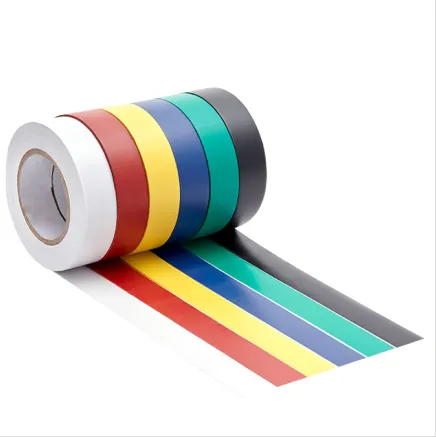Understanding the Pricing of Floor Tape A Comprehensive Guide
When it comes to maintaining safety and efficiency in various environments, floor tape plays a critical role. It is widely used in warehouses, factories, offices, and other facilities to delineate walkways, mark hazardous areas, and improve overall organization. However, as with any product, understanding the pricing of floor tape is vital for making informed purchasing decisions.
What is Floor Tape?
Floor tape is a durable adhesive tape designed to be applied to floors for a variety of purposes. It can be made from different materials, typically vinyl or PVC, and is available in various colors, widths, and patterns. The design and material choice often impact the tape's longevity and performance in different environments. For instance, some tapes are specifically designed for heavy traffic areas, while others might be more suited for indoor use.
Factors Influencing Floor Tape Price
1. Material Quality The primary factor affecting the price of floor tape is the quality of the materials used in its production. High-quality vinyl or PVC tapes are generally more expensive but offer better durability and adhesion, making them ideal for high-traffic areas. Conversely, lower-quality tapes may be more affordable but are likely to wear out quickly.
2. Width and Length Floor tape comes in various widths (typically ranging from 1 inch to 6 inches) and lengths (commonly 30 to 100 feet). Wider tapes tend to be more expensive due to the additional material required for production. Similarly, longer rolls may offer better value for money, reducing the per-foot cost.
3. Adhesive Strength The type of adhesive used can significantly influence the cost. A strong adhesive capable of resisting moisture, temperature changes, and heavy foot traffic may increase the price of the tape. However, this is often a worthwhile investment, as it ensures that the tape stays in place longer.
4. Color and Patterns Floor tape is available in numerous colors and safety patterns. Some colors may be more expensive due to their visibility or the specific pigments required for manufacturing. Additionally, patterned or printed tapes often come at a premium.
floor tape price

5. Brand Reputation Established brands that are known for their quality products typically charge more than lesser-known brands. Investing in a reputable brand can ensure higher reliability and performance, especially in critical safety applications.
6. Bulk Purchases Buying floor tape in bulk can lead to significant cost savings. Many suppliers offer discounts for larger quantities, making it a cost-effective option if you have extensive floor marking needs.
7. Environmental Considerations Eco-friendly floor tapes made from sustainable materials may come at a higher price point. However, for businesses committed to sustainability, the investment can align with corporate values and enhance their brand image.
Comparing Prices Where to Buy Floor Tape
Floor tape can be purchased from various sources, including online retailers, home improvement stores, industrial supply houses, and specialty safety equipment suppliers. Comparing prices across different platforms can help you find the best deal while ensuring you receive a quality product that meets your needs.
Before purchasing, it is essential to consider the intended use of the tape. For example, a manufacturing facility may require a heavy-duty option that withstands wear, while an office environment might not need such a robust product. Understanding the specific requirements will help in selecting the right tape without overspending.
Conclusion
In summary, the price of floor tape varies widely based on multiple factors, including material quality, dimensions, adhesive strength, design, and brand reputation. By understanding these influences and comparing various products, you can make an informed decision that balances cost and quality effectively. Whether you manage a large facility or are simply looking to enhance safety in your workspace, investing in the right floor tape can contribute significantly to operational efficiency and safety. Remember, the cheapest option isn't always the best; investing in quality floor tape can save time and money in the long run.
-
XIANGFAN Rubber Tape-Ultimate Solutions for All Your Insulation NeedsNewsJun.24,2025
-
XIANGFAN Rubber Tape-Protection for Industrial and Residential ApplicationsNewsJun.24,2025
-
XIANGFAN Rubber Tape: Superior Safety and Sealing for Demanding EnvironmentsNewsJun.24,2025
-
XIANGFAN Rubber Tape: Reliable Solutions for Every Electrical ChallengeNewsJun.24,2025
-
XIANGFAN Electrical & Industrial Tape: Powering Reliability Across IndustriesNewsJun.24,2025
-
XIANGFAN Electrical & Industrial Tape: Excellence in Every ApplicationNewsJun.24,2025
